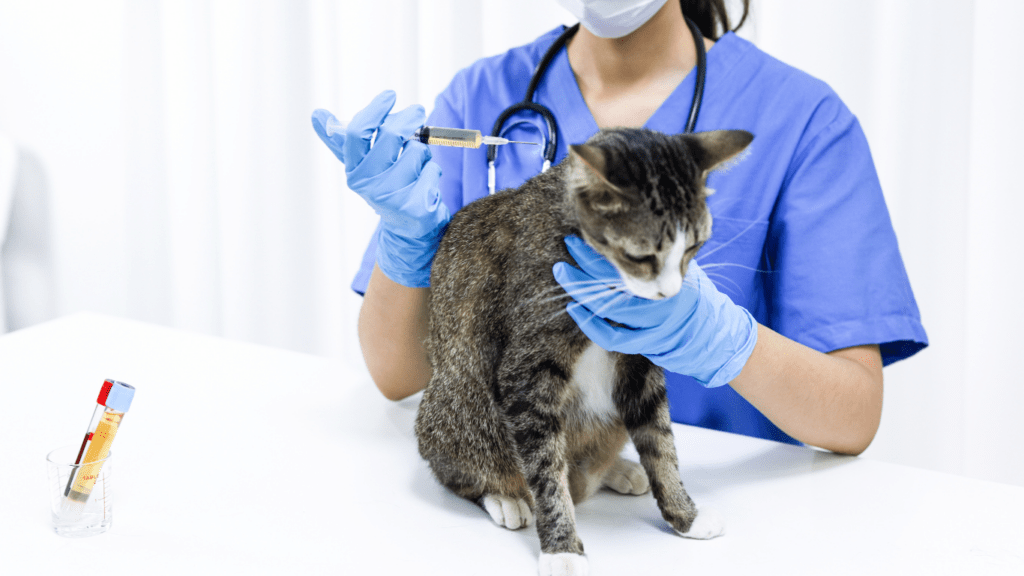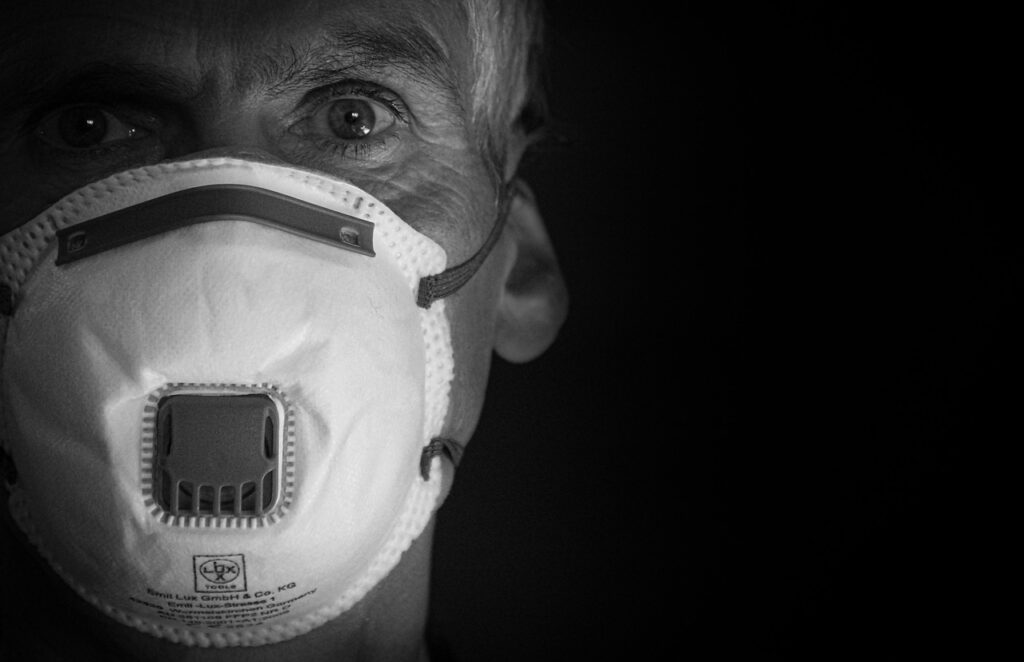Understanding the Importance of Regular Vet Visits
Regular vet visits are crucial for pet health. These visits help identify health problems early, ensuring prompt treatment. Detecting issues like dental disease, obesity, and infections early on can prevent severe complications.
Veterinarians provide essential vaccines. Vaccinations protect pets from serious illnesses such as rabies, distemper, and parvovirus. Regular updates ensure continued immunity, reducing the risk of outbreaks.
Routine check-ups assess overall health. Veterinarians examine weight, coat condition, and behavior, identifying potential issues that may not be apparent at home. This holistic assessment promotes early intervention.
Parasite control is another key aspect. Parasites like fleas, ticks, and worms can cause major health problems. Regular vet visits ensure pets receive preventive treatments, keeping them parasite-free.
Senior pets require specialized care. As pets age, they become more susceptible to conditions such as arthritis, diabetes, and kidney disease. Frequent visits help manage these conditions, improving quality of life.
Behavioral issues often signal underlying health problems. Regular vet check-ups help identify if behavioral changes stem from medical conditions, allowing for appropriate treatment.
Vaccinations, routine check-ups, parasite control, and senior care highlight the importance of regular vet visits. These elements ensure pets lead healthy lives. By prioritizing these visits, pet owners can maintain their pets’ well-being effectively.
Factors Influencing Vet Visit Frequency

Various factors affect how often your pet should visit the vet. Understanding these factors helps you tailor a schedule that ensures your pet’s optimal health.
Age and Life Stage
Puppies and kittens need frequent vet visits for vaccinations, deworming, and growth monitoring. Typically, they visit the vet every 3-4 weeks until they reach 16 weeks. Adult pets, between 1-7 years, generally need annual check-ups. Senior pets, those over 7 years, might require semi-annual visits to monitor age-related conditions.
Breed and Genetics
Certain breeds are predisposed to specific health issues requiring more frequent vet visits. For example, large dog breeds, like German Shepherds, often face hip dysplasia. Small breeds, such as Dachshunds, can encounter back problems. Being aware of your pet’s breed-specific risks helps you stay proactive with vet visits.
Health Status
Pets with chronic conditions, such as diabetes or heart disease, need regular monitoring, often resulting in more frequent vet visits. Pets recovering from surgeries or treatment for acute illnesses also necessitate frequent check-ins. Ensuring consistent vet visits for these pets is crucial for effective management and recovery.
Recommended Vet Visit Schedule by Pet Type
Scheduling regular vet visits is essential for maintaining your pet’s health. The frequency varies by pet type, ensuring optimal care for each.
Dogs
Dogs benefit from yearly vet visits for annual exams, vaccinations, and parasite control. Puppies under one year need more frequent visits, typically every 3-4 weeks, to complete their vaccination series, deworming, and conduct early health checks. Adult dogs, aged one to seven, should see the vet annually for routine exams and booster shots. If you’re nearby, consider a trusted small-animal vet in Phoenix for routine and urgent needs. Consistent scheduling makes annual and biannual care easier. Senior dogs, over seven years, require biannual visits; the vet monitors for age-related issues, performs blood work, and adapts care plans for their changing needs.
Cats
Cats also thrive with regular vet visits. Kittens require visits every 3-4 weeks until they reach 16 weeks old. During these visits, they receive vaccinations, deworming, and early disease screening. Adult cats need annual check-ups, where vets focus on overall health, dental care, and vaccinations. For senior cats, aged eight and older, biannual visits help detect conditions like kidney disease and diabetes early, allowing for prompt treatment. Preventative care is crucial for indoor cats as they are prone to obesity and dental issues.
Small Mammals
Small mammals, such as rabbits, guinea pigs, and hamsters, should see a vet annually for health assessments and dental checks. Young or newly adopted small mammals might need initial visits to establish a health baseline and address any emergent issues. For these animals, dental examinations are vital since overgrown teeth can lead to serious health problems. Regular vet visits help identify potential issues early and ensure a proper diet and habitat for their unique needs.
Birds
Birds benefit from annual vet visits, involving a thorough physical exam, nutritional consultation, and disease screening. Young birds or newly acquired birds need an initial vet visit to establish overall health and screen for common avian diseases. For specialized species with unique dietary and environmental needs, vet visits might include specific guidance on husbandry and enrichment to prevent behavioral and health problems. Routine exams can prolong lifespan and enhance quality of life by addressing concerns early.
Scheduling appropriate vet visits based on pet type ensures tailor-fitted healthcare, fostering long, healthy lives for your cherished companions.
Signs Your Pet May Need an Extra Visit
Recognizing early warning signs can make a significant difference in your pet’s health. If you notice any changes, it’s important to consult your veterinarian promptly.
Behavioral Changes
Monitoring your pet’s behavior helps identify potential health issues. Any sudden aggression, withdrawal, or lethargy can indicate a problem. For instance, a normally sociable cat hiding constantly might be in pain. Excessive licking, especially at specific spots, could suggest discomfort or irritation. Changes in eating or drinking habits, such as increased thirst or loss of appetite, can also be red flags.
Physical Symptoms
Physical changes are often more visible but equally crucial. Look for signs like unusual lumps, which might indicate growths or tumors. Persistent scratching or hair loss could signal allergies or skin conditions. Changes in weight, either gain or loss, can reflect underlying health issues. Monitor for persistent coughing, sneezing, or difficulty breathing, as these can signify respiratory problems. If you observe any of these symptoms, schedule a vet visit immediately.
What to Expect During a Vet Visit
Regular vet visits are crucial for monitoring your pet’s health. Knowing what happens during these visits prepares both you and your pet.
Routine Check-Ups
During routine check-ups, a vet thoroughly examines your pet. The vet checks:
- Weight and Vital Signs: Measuring weight, temperature, pulse, and respiration.
- Physical Examination: Inspecting eyes, ears, teeth, skin, and coat.
- Vaccinations: Administering necessary vaccines, like rabies and distemper.
- Parasite Prevention: Discussing and prescribing treatments for fleas, ticks, and worms.
- Diet and Nutrition: Advising on proper diet and any necessary supplements.
- Behavioral Issues: Identifying and addressing any behavioral concerns.
Emergency Visits
Emergency visits address urgent medical issues. Common reasons include:
- Injuries: Treating wounds, fractures, or other physical trauma.
- Sudden Illness: Addressing vomiting, diarrhea, seizures, or difficulty breathing.
- Poisoning: Handling cases of ingesting toxic substances.
- Severe Pain: Managing acute pain unrelieved by normal measures.
- Ingestion of Foreign Objects: Removing objects stuck in the digestive tract.
During an emergency visit, the vet prioritizes stabilizing your pet and determining the cause of the issue for swift intervention.
Understanding these aspects helps you make the most of your pet’s vet visits, prioritizing their health and wellness.
Preventative Care and Its Benefits
Regular vet visits for preventative care ensure pets stay healthy. Routine check-ups catch potential health issues before they become serious, saving both time and money. Vets provide vaccines, parasite control, and dental care, essential for overall wellness. Pets also get tailored health plans based on age, breed, and health status.
Vaccinations protect pets from diseases like rabies and parvovirus. Maintaining an up-to-date vaccine schedule guards them against common and potentially fatal illnesses. For instance, dogs need distemper vaccines, while cats require feline leukemia shots.
Parasite prevention helps avoid infestations of fleas, ticks, and worms. Vets prescribe preventatives tailored for pets’ specific needs, ensuring comprehensive protection. Regular checks can catch and treat infestations early, promoting a healthier environment at home.
Dental care is essential for preventing plaque and tartar buildup, which can lead to periodontal disease. Regular dental cleanings and check-ups help maintain pets’ oral health, reducing the risk of related systemic problems like heart and kidney disease.
Tailored health plans consider pets’ unique needs. For example, senior pets need more frequent visits due to the higher risk of age-related conditions like arthritis and diabetes. Younger pets benefit from growth monitoring and early detection of congenital issues.
Preventative care also includes dietary and behavioral advice. Vets provide guidelines on nutrition and weight management, tailored to pets’ specific health needs. Behavioral counseling addresses issues such as anxiety and aggression, improving pets’ quality of life and relationship with owners.
By prioritizing preventative care, pet owners invest in their pets’ long-term health and happiness. Regular vet visits are a cornerstone of this approach, ensuring pets lead healthier, happier lives.



 Veterinary Advisor & Health Expert
Anthony Brooks is the in-house Veterinary Advisor at Pet Paw Shack, offering expert advice on pet health, disease prevention, and general veterinary care. With years of experience as a licensed veterinarian, Anthony helps guide pet owners through essential topics like vaccinations, routine checkups, and emergency care. His commitment to keeping pets healthy ensures that Pet Paw Shack delivers trusted and accurate medical insights.
Veterinary Advisor & Health Expert
Anthony Brooks is the in-house Veterinary Advisor at Pet Paw Shack, offering expert advice on pet health, disease prevention, and general veterinary care. With years of experience as a licensed veterinarian, Anthony helps guide pet owners through essential topics like vaccinations, routine checkups, and emergency care. His commitment to keeping pets healthy ensures that Pet Paw Shack delivers trusted and accurate medical insights.
